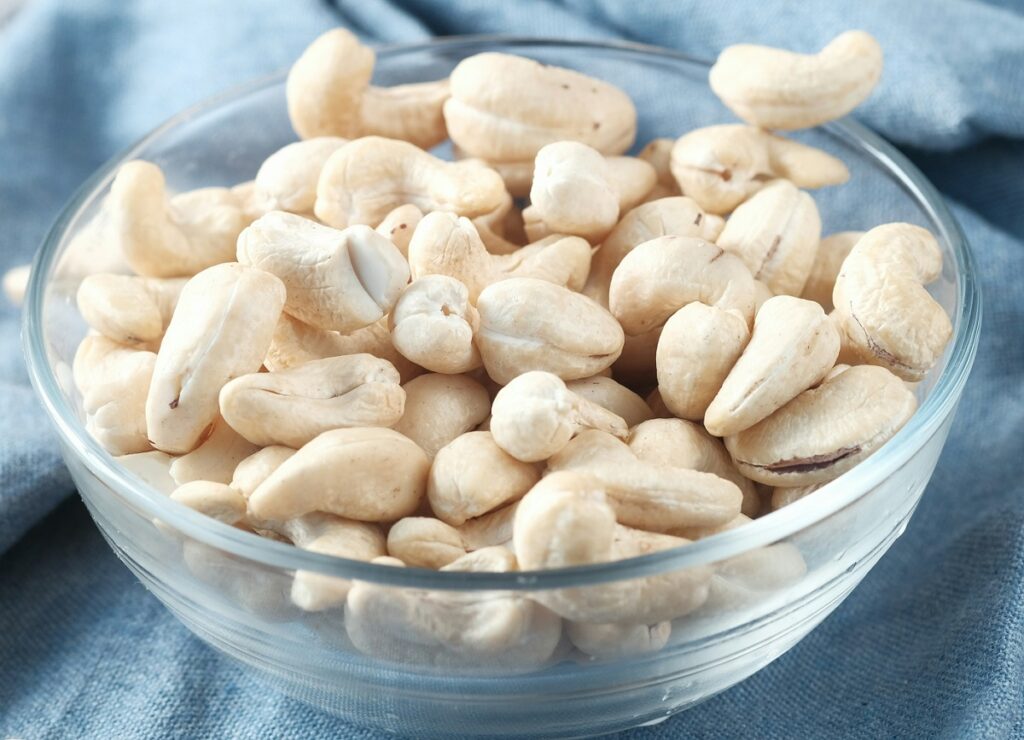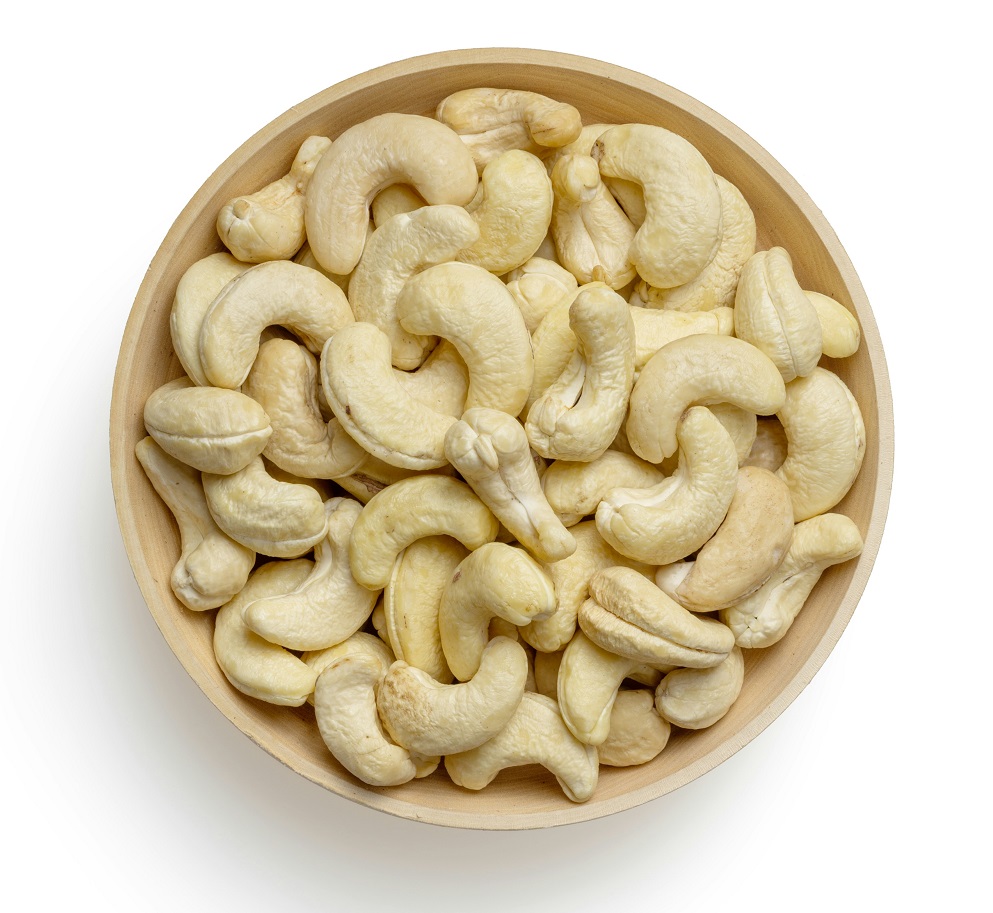Cashews are much more than a tasty snack—they are a nutritious powerhouse that offers a wide range of health benefits. Packed with essential nutrients, these small, kidney-shaped nuts have the potential to improve everything from your heart health to your brain function. Whether you’re looking to boost your energy, manage your weight, or improve the health of your bones and skin, cashews can be a helpful addition to your diet. In this article, Mohit Tandon USA will explore 10 reasons why cashews are so good for you, supported by their nutritional profile and scientific evidence of their health benefits.
1. Nutrient-Rich Superfood
Cashews are a nutrient-dense food, providing a wide variety of vitamins, minerals, and antioxidants in each serving. One ounce (28 grams) of cashews contains around 157 calories, with a balance of macronutrients that includes healthy fats, protein, and a moderate amount of carbohydrates. These nuts are particularly high in copper, which is essential for the production of red blood cells, collagen, and enzymes that help in energy production. Additionally, cashews are an excellent source of magnesium, a mineral that plays a key role in over 300 enzymatic reactions in the body, including those related to muscle function, nerve transmission, and protein synthesis.
Cashews also contain phosphorus, which helps to maintain bone health and facilitate energy production, and zinc, an essential mineral for immune function, protein synthesis, and DNA formation. Moreover, they are a good source of antioxidants like vitamin E and polyphenols, which protect the body against oxidative stress and prevent cell damage. Given their impressive nutrient profile, cashews are more than just a delicious treat—they are a superfood that supports various bodily functions and promotes overall well-being. – Mohit Tandon USA
2. Promote Heart Health
Heart disease is one of the leading causes of death globally, but including cashews in your diet can help lower the risk of developing cardiovascular issues. Cashews are rich in monounsaturated and polyunsaturated fats—healthy fats that play a crucial role in maintaining a healthy heart. Studies have shown that replacing saturated fats with unsaturated fats can help lower levels of LDL (low-density lipoprotein) cholesterol, often referred to as “bad” cholesterol. This, in turn, reduces the risk of heart disease and stroke.
In addition to their healthy fat content, cashews are a good source of magnesium, which helps regulate blood pressure. Maintaining healthy blood pressure is essential for preventing heart disease, as hypertension can increase the risk of stroke, heart attacks, and kidney damage. Furthermore, cashews contain antioxidants like vitamin E and flavonoids that help combat oxidative stress and inflammation, both of which are linked to an increased risk of cardiovascular diseases. Regularly consuming cashews as part of a heart-healthy diet can be a simple yet effective way to support cardiovascular health.
3. Aid in Weight Management
Cashews may seem like a calorie-dense snack, but when eaten in moderation, they can actually support weight management. Despite their relatively high calorie content, research has shown that consuming nuts like cashews in appropriate portions may aid in weight loss or help with weight maintenance. The key lies in the combination of fiber, protein, and healthy fats in cashews, all of which contribute to a feeling of fullness and satiety.
Fiber is particularly effective at slowing down the digestion process, which means you feel fuller for longer after eating cashews. Protein, on the other hand, helps to build and repair muscles, while also contributing to feelings of fullness. Moreover, the healthy fats found in cashews can aid in the burning of body fat, as they promote the production of energy and prevent the storage of excess fat. Consuming a handful of cashews as a snack can help curb hunger cravings and prevent overeating during meals, making it easier to control your calorie intake and manage your weight effectively.

4. Improve Bone Health
Cashews are an excellent source of minerals that support bone health, including magnesium, phosphorus, and copper. Magnesium plays a key role in the formation of bones and teeth by helping the body absorb and retain calcium. It also helps in maintaining bone density, which is essential for preventing bone-related issues like osteoporosis. In fact, magnesium deficiency has been linked to an increased risk of bone fractures and weakened bones.
Phosphorus is another important mineral found in cashews that contributes to bone health. About 85% of the phosphorus in the human body is found in the bones and teeth, where it helps to strengthen their structure. Copper, a trace mineral present in cashews, is involved in the formation of collagen, a protein that provides structural support to bones, joints, and connective tissue. By regularly consuming cashews, you can help strengthen your bones and reduce the risk of bone-related diseases, especially as you age.
5. Boost Brain Function
Cashews are not just good for your body—they are also beneficial for your brain. Rich in nutrients like magnesium, copper, and healthy fats, cashews support cognitive function and may even improve memory and mental clarity. Magnesium is essential for nerve function and plays a role in regulating neurotransmitters, the chemicals that transmit messages in the brain. Proper magnesium levels have been linked to better cognitive performance and a reduced risk of neurodegenerative diseases like Alzheimer’s disease.
Copper, another vital nutrient in cashews, is involved in the production of dopamine, a neurotransmitter that affects mood and mental focus. Copper also helps in the formation of myelin, the protective sheath around nerve fibers, which is essential for proper brain function. Moreover, the antioxidants in cashews, such as vitamin E and flavonoids, protect the brain from oxidative damage that can lead to cognitive decline. By incorporating cashews into your diet, you can support brain health and improve mental function. – Mohit Tandon USA
6. Support Immune System
A strong immune system is crucial for protecting the body against infections and illnesses, and cashews can help boost immune function due to their high content of zinc. Zinc is an essential mineral involved in the production and activation of immune cells, such as T-cells and macrophages, which play an important role in defending the body against harmful pathogens. Zinc also helps in the healing process and supports the function of enzymes that fight inflammation.
In addition to zinc, cashews contain antioxidants that help protect the immune system from oxidative stress. Vitamin E, a fat-soluble antioxidant found in cashews, helps protect cells and tissues from damage caused by free radicals. Consuming cashews regularly can help strengthen your immune response, reduce inflammation, and keep your body healthy.
7. Promote Healthy Skin
Cashews are an excellent source of nutrients that contribute to healthy, glowing skin. The antioxidants in cashews, particularly vitamin E, help to protect skin cells from damage caused by UV radiation and environmental pollutants. Vitamin E acts as a powerful antioxidant that neutralizes free radicals, which can cause premature aging of the skin and increase the risk of skin conditions such as acne, eczema, and wrinkles.
Additionally, the healthy fats in cashews help to maintain the skin’s natural moisture balance, preventing dryness and promoting a smooth, supple complexion. Copper, another mineral found in cashews, plays a key role in the production of collagen, a protein that helps keep the skin firm and elastic. By including cashews in your diet, you can support the health of your skin, reduce the appearance of wrinkles, and promote a more youthful glow. – Mohit Tandon USA

8. Regulate Blood Sugar Levels
Cashews have a relatively low glycemic index, meaning they have a minimal effect on blood sugar levels when consumed in moderation. This makes them a good choice for people with diabetes or those looking to prevent blood sugar spikes. The combination of healthy fats, protein, and fiber in cashews helps regulate the release of glucose into the bloodstream, preventing rapid increases in blood sugar levels after meals.
Moreover, magnesium, a key nutrient found in cashews, plays a role in insulin regulation. Insulin is the hormone responsible for controlling blood sugar levels, and magnesium helps the body use insulin more efficiently. Research has shown that people with higher magnesium intake have a lower risk of developing type 2 diabetes. By adding cashews to your diet, you can help keep your blood sugar levels stable and reduce your risk of developing diabetes.
9. Improve Digestion
Cashews are a good source of dietary fiber, which is essential for maintaining a healthy digestive system. Fiber helps regulate bowel movements by adding bulk to stool and promoting regularity. It also supports the growth of beneficial gut bacteria, which play a crucial role in digestion and overall gut health. A healthy gut microbiome is linked to improved digestion, enhanced immunity, and even better mental health.
Moreover, the healthy fats in cashews help lubricate the digestive tract, making it easier for food to pass through the intestines. Fiber also aids in the absorption of nutrients from food, ensuring that your body gets the maximum benefit from the food you eat. By including cashews in your diet, you can support digestive health and prevent constipation and other digestive issues.
10. Improve Eye Health
Cashews contain lutein and zeaxanthin, two antioxidants that are beneficial for eye health. These compounds help protect the eyes from oxidative stress caused by UV radiation and environmental pollutants. Lutein and zeaxanthin are particularly effective at filtering harmful blue light, which can damage the retina and increase the risk of age-related macular degeneration (AMD), a leading cause of blindness in older adults. Regular consumption of cashews can help protect your vision and promote long-term eye health.
In conclusion, cashews are not only a delicious snack but also a nutrient-rich food that provides numerous health benefits. From promoting heart health and supporting weight management to boosting brain function and improving skin health, cashews are an excellent addition to any diet. By incorporating these versatile nuts into your meals or enjoying them as a snack, you can enjoy a wide range of health benefits that support your overall well-being.
